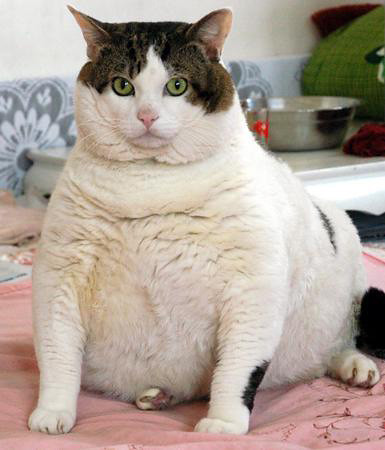Diabetes Mellitus: Natural Prevention and Protection
When one thinks of diabetes mellitus (Type II Diabetes), the mind does not naturally wander to our pets. The rate of diabetes among humans is skyrocketing, but did you know the same is happening in the pet community? Our pets are reflections of ourselves (I firmly believe this) and when it comes to regulating weight in our pets, that is 100% on the owner. Regardless of breed, age, sex, and environment, pet owners are the ones controlling what goes in the mouths of those furry ones we love so much. Though it may be easier to blame others when it comes to our own weight problems, when it comes to our fur babies the only place to look is the mirror and our shopping cart at the pet store.
 What would lead to diabetes in our pets?
What would lead to diabetes in our pets?
For starters, diets heavy in grains and unnecessary carbohydrates can lead to weight gain. Let’s not forget about those “hungry eyes” that often have us dropping people food on the kitchen floor or allowing our pets to lick our plates clean (sometimes they do a better job than the dishwasher). Animals are not meant to eat the way humans do, both in quantity and quality. Where humans should be heavy on veggies and lean proteins, animals should have emphasis on meat, meat, and more meat with some veggies to supplement. Giving Fido or Fluffy a helping of pizza or breadsticks is a big no-no, and unfortunately is happening in households across the country.
 The Problem with Weight Gain
The Problem with Weight Gain
With weight gain comes any number of challenges. Joints, muscles, and internal biochemistry are all affected by being overweight. For today we are going to focus on Diabetes. Diabetes mellitus (type 2) is becoming rampant, especially in felines. It all starts with the pancreas. The pancreas is imperative in producing insulin, the hormone that helps bring glucose (blood sugar) into our cells. If the pancreas is not producing enough insulin, or the insulin itself is defective, then glucose is left hanging in the bloodstream and our cells are left lacking. Sugar in left in the blood is unable to be used for energy, so the body will turn to fat and protein, breaking them down in an attempt to bring sugar to our cells. Any excess sugar in the bloodstream is carried out in the urine, leading to excessive urinating and hydrating.
The Good News
There is some good news, though, when it comes to feline diabetes. Often times, the diabetes is a direct result of improper nutrition. The majority of feline dry food is composed of CARBS. When it comes to diabetes, carbohydrates in excess are the enemy. Switching your feline to a more protein dense and species-appropriate diet (we recommend a raw or dehydrated raw diet) can make all the difference in the world. Improvement may not be immediate, but usually within a week or two blood tests will reveal improved blood glucose levels. Now diabetes is not something seen very often in younger felines, and keeping that in mind we realize that cats can be fussy and stuck in their own ways. If switching your pet to a raw diet is not an option, adding wet food that is highly concentrated with proteins and removing grains from the diet is at least a step in the right direction.
 Alternative Treatments
Alternative Treatments
Diabetes is no joke and the side effects of long term diabetes can be debilitating. An animal with diabetes mellitus can easily develop neuropathy, ketoacidosis, and hypoglycemia. When diabetes is addressed immediately, the majority of the complications can hopefully be avoided. When left untreated, however, the complications can be traumatic and deadly. If your pet is diagnosed with diabetes you have options! There are many alternative ways to manage your pet, including dietary changes and addition of various supplements. In addition, acupuncture and chiropractic can help improve nervous system function, and when the nervous system is functioning optimally, the organs controlled by the nervous system also have the best chance at functioning at full force. If you have questions or concerns about animal chiropractic and what it can do for your animal, feel free to contact us at (248) 602-0807!





Leave a Reply
Want to join the discussion?Feel free to contribute!